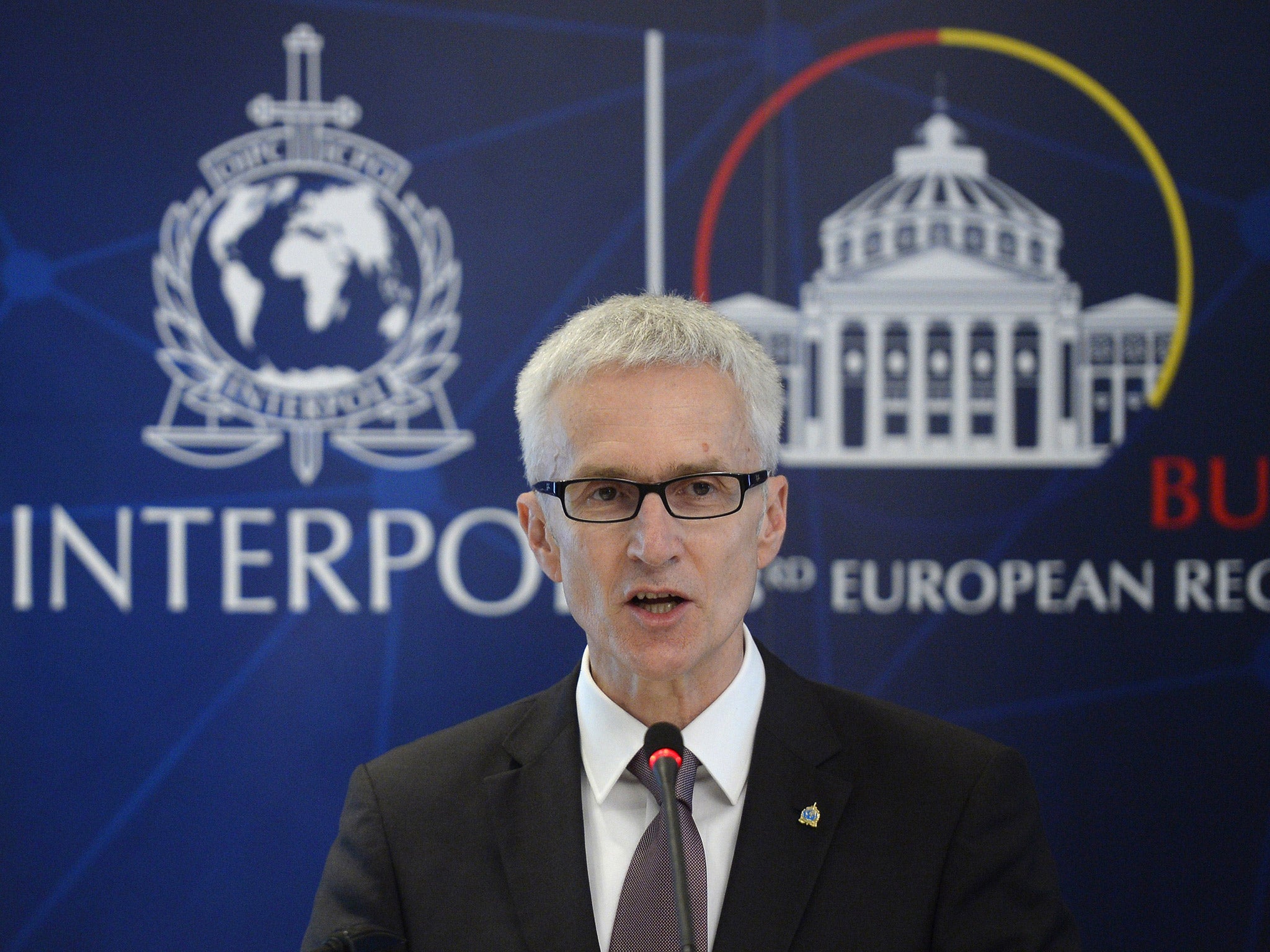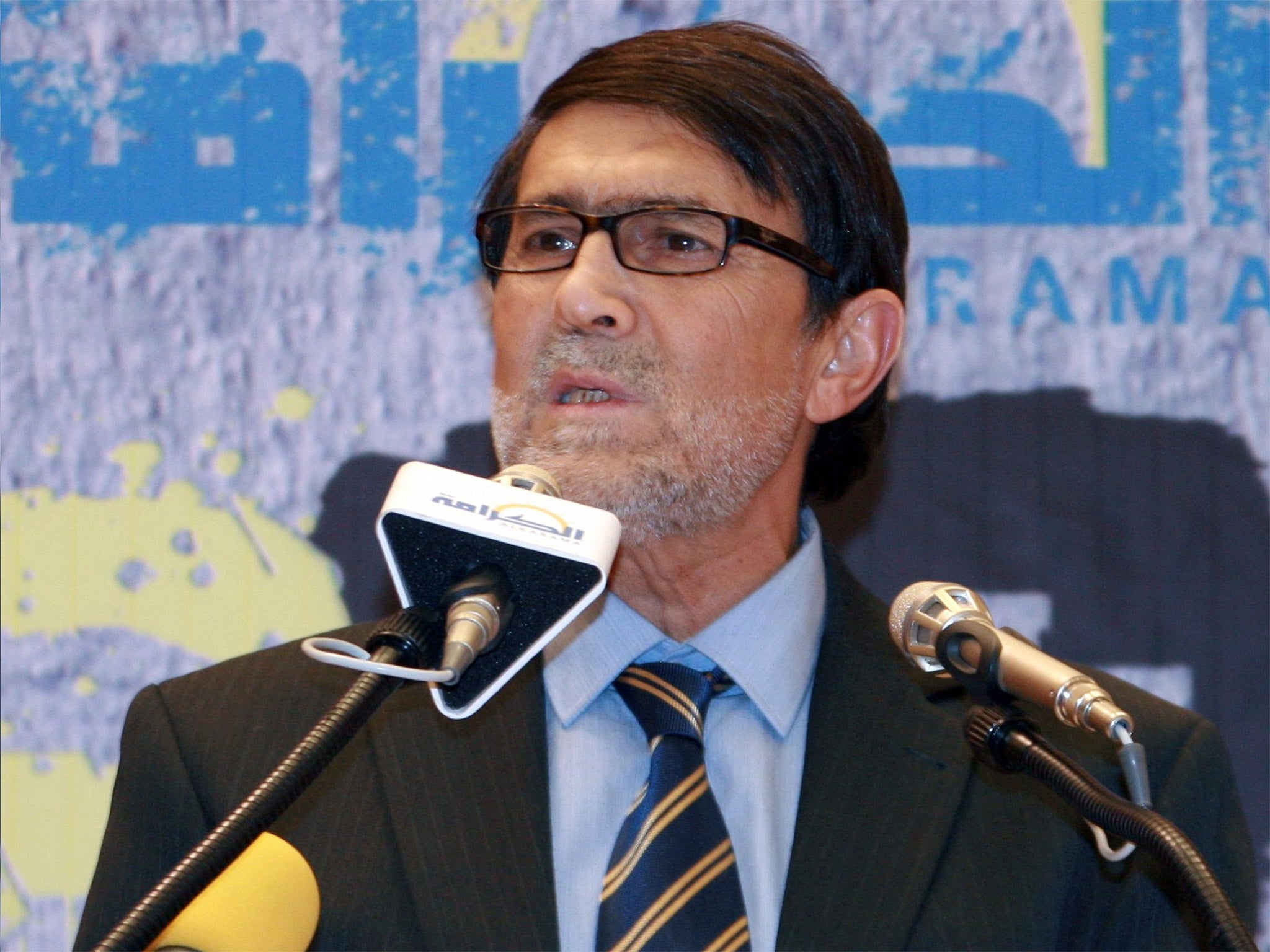Why is Interpol doing the work of Arab despots?
World View: The latest victim is the head of an Algerian NGO highlighting human rights violations in the Middle East


Your support helps us to tell the story
From reproductive rights to climate change to Big Tech, The Independent is on the ground when the story is developing. Whether it's investigating the financials of Elon Musk's pro-Trump PAC or producing our latest documentary, 'The A Word', which shines a light on the American women fighting for reproductive rights, we know how important it is to parse out the facts from the messaging.
At such a critical moment in US history, we need reporters on the ground. Your donation allows us to keep sending journalists to speak to both sides of the story.
The Independent is trusted by Americans across the entire political spectrum. And unlike many other quality news outlets, we choose not to lock Americans out of our reporting and analysis with paywalls. We believe quality journalism should be available to everyone, paid for by those who can afford it.
Your support makes all the difference.We were taught that Interpol was on the front line against world crime. Then it became part of the battle against global terror. But these days, Interpol is getting a bad reputation for harassing those who have fled the terror of ruthless Arab dictatorships and for helping to arrest innocent men – on behalf of Middle East despots.
The latest victim has been Rachid Mesli, the Algerian legal director of al-Karama, an above-board Swiss-based NGO researching human rights violations in – you might have guessed – the Arab world. He was driving to the valley of Aosta with his wife and son for a holiday last week when the Italian border police detained him because of an arrest warrant issued by the Algerian government in 2002, claiming that Mr Mesli was “a member of a terrorist group operating outside Algeria”. The Italians contacted the French and Swiss police, only to find that they had no evidence against him.
Then they called Interpol – and the would-be holidaymaker was driven off to jail for examination by the Tribunal of Torino. No one in Interpol apparently knew that the military-run “democracy” of Algeria has been waging a merciless war against its political and militant enemies for more than a decade, a conflict in which the Algerian police have been involved in tortures so vile – blowing up prisoners by forcing water-pressure hoses into their stomachs, for example – that even their colleagues in other intelligence services have been disgusted. But they tried to shut Mr Mesli up by demanding his arrest as a terrorist. And Interpol obligingly did their work.

Mourad Dhina, the executive director of al-Karama – it means “dignity” – protested vigorously against Mr Mesli’s arrest, saying that Interpol had, several times, failed to carry out security checks on warrants before detaining innocent suspects. Mr Dhina should know what he is talking about. Only two years ago, he was arrested at Orly airport in Paris because the Algerian authorities had accused him of “terrorist acts” in Zurich and demanded his extradition. Quite by chance (of course), Mr Dhina was at the time standing in elections against the incumbent Algerian President Abdulaziz Bouteflika. Neither the Swiss nor the French knew anything about his “terrorist acts” in Zurich.
But on the basis of the warrant passed on by Interpol, Mr Dhina was banged up in the La Sante prison until Bouteflika won. Quite by chance – again – Mr Dhina had also been encouraging the Swiss to question Khaled Nezzar, one of the top Algerian generals who overthrew the Benjadid government in 1992, a coup which led to a civil war in which thousands were massacred or tortured to death. It took the French judiciary all of two months to decide that the Algerian warrant was “ill-founded”.
Two mistakes are unfortunate. But three? In June this year, Berlin police pounced on Al Jazeera reporter Ahmed Mansour as he was about to head to Doha from Tegel airport. Mr Mansour, an Egyptian who has written one of the most powerful books on the US siege of Fallujah and makes no secret of his distaste for President-Field Marshal Sisi’s regime, was arrested on warrant that had been helpfully disseminated by Interpol. It was issued by Sisi’s regime, claiming that the reporter had tortured a lawyer. The warrant, issued by a government that has already sentenced hundreds to death, including the country’s former elected president, was eventually rejected by the German state prosecutor because of “political and diplomatic concerns that could not be ignored”. Mr Mansour was speedily released.
Mr Mesli remains in Aosta under house arrest, but is happy to eat its fine food with his wife and son until next Monday, when the Italian Tribunal may free him – if they haven’t heard from the Algerian regime. On Mr Murad’s experience, this could take some time. No word from Interpol, of course. Maybe they should pay for the family meals.